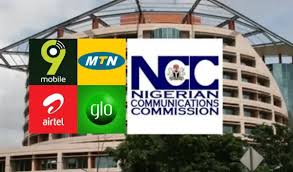Nigerians are expressing growing frustration over persistent mobile network failures, widespread outages, and rising data prices. Since early 2024, millions of users have experienced dropped calls, disappearing signals, and painfully slow internet speeds, often despite active subscriptions.
Mobile network operators have admitted to the crisis. In 2024, MTN Nigeria blamed a nationwide outage on “multiple fibre cuts,” promising gradual restoration. Airtel Nigeria later reported suffering an average of 43 fibre cuts daily, with 7,742 disruptions recorded in six months. The company appealed for protection of its infrastructure. Globacom, meanwhile, claimed its Glo-1 undersea cable remained unaffected during recent regional failures. 9mobile, also affected, dismissed shutdown rumours in March 2025, citing “temporary challenges” due to system upgrades.
Operators point to sabotage and infrastructure accidents as key causes. At the same time, they warn that rising operational costs and foreign exchange pressures are squeezing service delivery.
In December 2024, the Nigerian Communications Commission (NCC) formed a joint task force with the Ministries of Works and Communications to curb fibre cable vandalism. The NCC reported that fibre cuts caused losses of ₦35.4 billion in 2023 alone. Its Executive Vice Chairman, Dr. Aminu Maida, revealed that over 50,000 fibre cut incidents were recorded nationwide that year.
Telecom companies have also complained about the financial strain of maintaining services. The Association of Telecommunications Companies of Nigeria (ATCON) warned in 2024 that providers might resort to a “load-shedding” model, delivering quality service only to select areas due to cost constraints. NATCOMS chairman Gbenga Adebayo said operators might have no choice but to rotate service quality: “Some areas will enjoy better services, while other areas… may just have to bear epileptic services.”
The approval of a 50 per cent tariff increase in January 2025 deepened tensions. Though operators originally requested a 100 per cent hike, regulators allowed half that amount in a bid to balance cost and consumer burden. The result saw call rates rise from ₦6.40 to ₦9.60 per minute, and data from ₦287.50 to ₦431.25 per gigabyte.
Consumer advocacy groups, however, say the increased rates must be matched with improved service. The Federal Competition and Consumer Protection Commission (FCCPC) warned that “tariff adjustments must directly translate into demonstrable service enhancements.” Yet statistics suggest otherwise. After the hike, internet traffic fell sharply — from 1.0 million terabytes in January to 893,000 TB in February — as users cut back on data usage. While March brought a mild rebound, traffic levels remain below pre-hike figures.
Online, user anger is palpable. Social media platforms have been flooded with complaints over poor coverage, unexplained data depletion, and inflated prices. One MTN user lamented a threefold increase in a weekly data bundle. Another commented, “My 9Mobile SIM has shown ‘No Service’ for two weeks.” Others accuse service providers of indifference and call for penalties.
Civil society groups have also weighed in. In August 2024, over 30 NGOs accused authorities of deliberately throttling internet speed during protests. The NCC denied involvement, calling the outages routine.
Economic pressures continue to worsen the crisis. In 2024, MTN Nigeria’s revenue dropped 53 per cent in rand terms due to naira devaluation, while its South African counterpart posted slight gains. In contrast, Q1 2025 saw MTN Nigeria rebound dramatically, posting a ₦133.7 billion profit — up from a ₦392.7 billion loss the previous year — after implementing price hikes and boosting network investments by 159 per cent. The company pledged to invest an additional ₦800 billion to upgrade infrastructure.
Despite this, complaints about poor service persist. South African telecoms face similar infrastructure challenges, but Nigerian users report more severe disruptions. Experts argue that without reducing vandalism and completing promised investments, consumers will continue to suffer unreliable service.
For everyday Nigerians, the impact is tangible. Entrepreneurs dependent on mobile internet fear losing customers. Remote workers struggle to remain online during critical meetings. And for many citizens, failed connectivity during emergencies could be the difference between life and death.
In March 2025, the Nigerian Senate called on the Ministry of Communications to review the data tariff increase. But until improvements materialise, many believe Nigerians are paying more for less.
Telecom operators now face a pivotal moment. With rising public pressure and eyes on promised upgrades, the next few months may determine whether Nigeria’s telecom sector can restore public trust, or continue its slide into deeper crisis.


